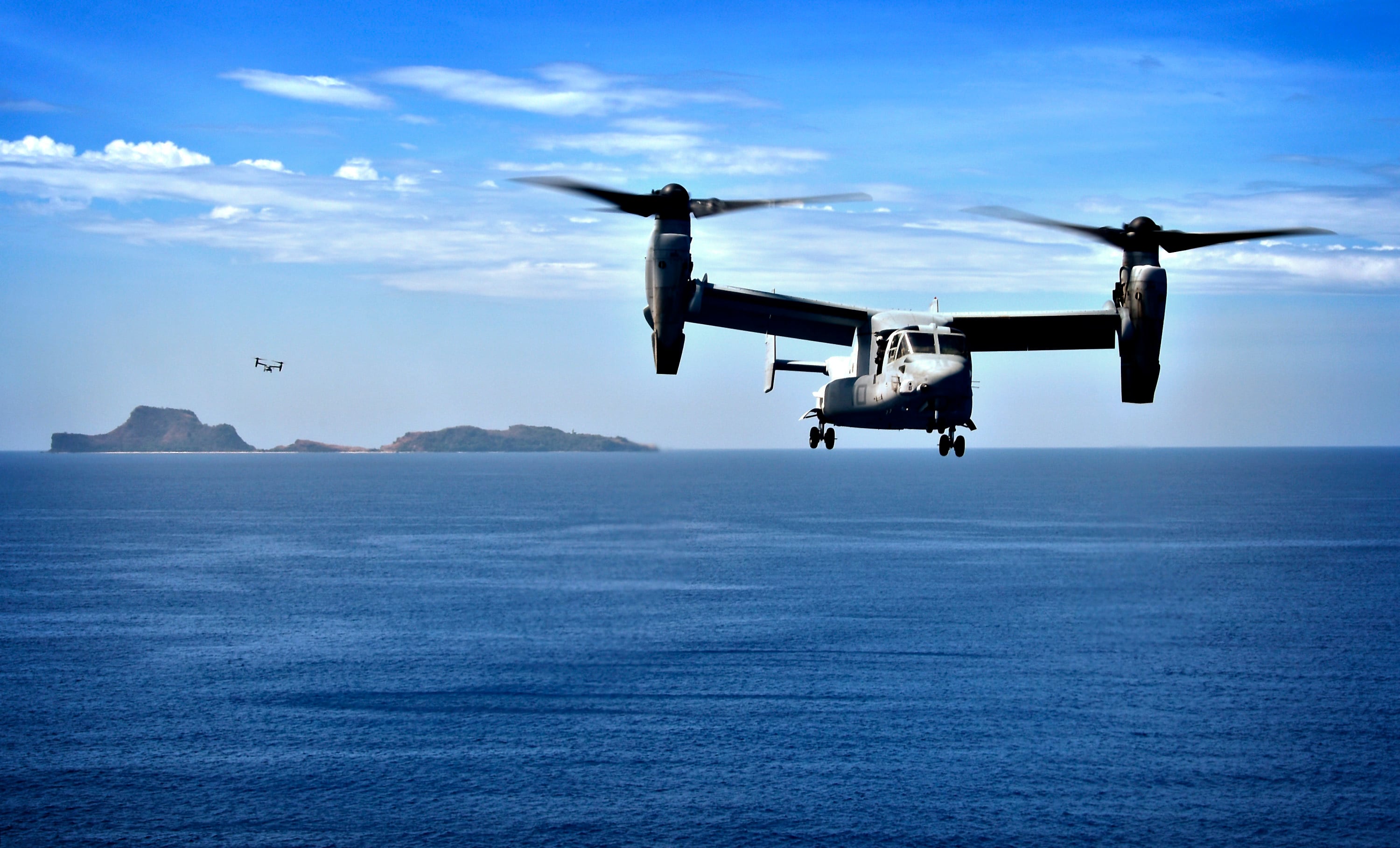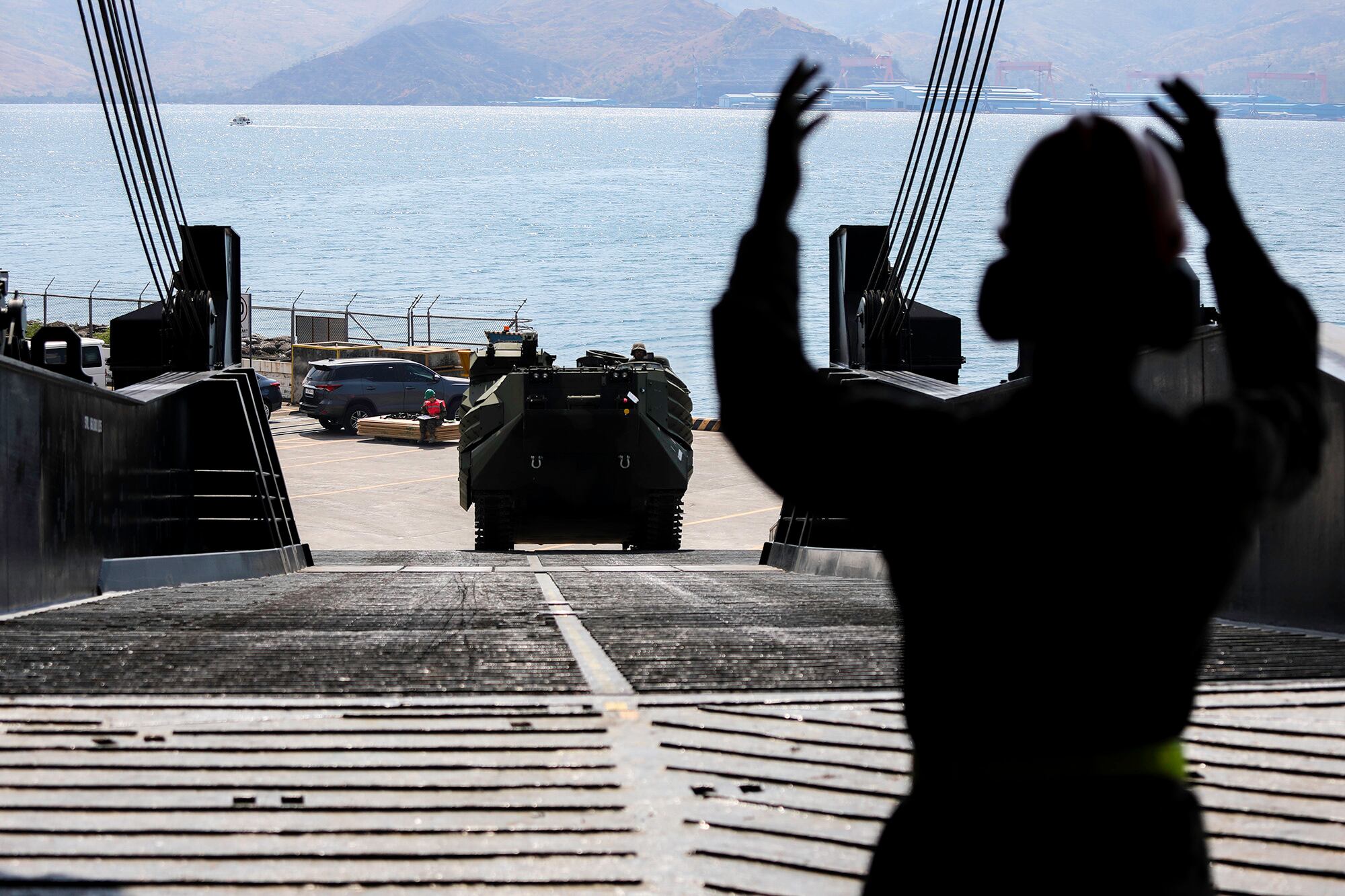MANILA, Philippines — American and Philippines forces on Monday opened one of their most scaled down annual combat exercises in decades due to the pandemic, and organizers said the drills would remain focused on territorial defense, battling terrorism and humanitarian projects.
Philippine Maj. Gen. Edgard Arevalo said the number of American military personnel joining the 11 days of exercises was trimmed from 3,650 to 225, while only 736 Filipino counterparts would participate out of 4,000 as originally planned. Arevalo said all ground exercises except some live-fire drills were canceled to minimize physical engagement.
The annual exercises were canceled last year as the pandemic spread across the world.
RELATED

U.S. and Philippine officials hailed the strength of their treaty alliance in an opening ceremony in Manila. They made no mention of their earlier denunciation of Beijing for the swarming of suspected Chinese militia vessels at a Philippine-claimed reef in the disputed South China Sea.
Philippine Defense Secretary Delfin Lorenzana said the combat drills called Balikatan, Tagalog for shoulder-to-shoulder, represent “a rock-solid commitment to keep our ties ironclad.”
“May this inspire confidence and action from our allies in the region to stand with us in defending our values toward peace and prosperity,” Lorenzana said in remarks read by a defense department deputy since he was in isolation after contracting COVID-19.
American Embassy official John Law said the military drills “demonstrate our shared commitment to peace and stability and the adaptability of U.S. and Philippine forces.”
“The United States will continue to seek ways, even during the pandemic, to strengthen our security cooperation,” Law said.
China has frowned on the drills in the past when some maneuvers were staged on the western coast of the Philippines facing the South China Sea, where it has often accused Washington of intervening in a purely Asian dispute. China, the Philippines, Vietnam, Malaysia, Taiwan and Brunei have been locked in long-raging territorial disputes in the busy waterway.
The U.S. has no claims in the resource-rich waters but its warships regularly patrol the region and have occasionally sailed close by Chinese-occupied islands, islets and reefs in so-called freedom of navigation operations to challenge Beijing’s vast territorial claims. Washington has declared that the peaceful resolution of the disputes and freedom of navigation and overflight in the region are in its national interest, but China has warned the U.S. from meddling in the region.
Lorenzana recently demanded swarms of Chinese vessels he suspects were operated by militias to leave Whitsun Reef, saying the territory lies within an offshore area where the Philippines has exclusive rights to exploit fishing and fuel resources.
China has dismissed Lorenzana’s demand and insisted that China owns the reef, adding nobody could question the right of Chinese fishermen to gather there to fish or take shelter from rough seas. The U.S. has backed the Philippines amid the dispute and accused China of using “maritime militia to intimidate, provoke and threaten other nations, which undermines peace and security in the region.”
U.S. Defense Secretary Lloyd Austin discussed the massing of Chinese vessels at Whitsun in a phone call with Lorenzana over the weekend and proposed steps to deepen defense cooperation, U.S. and Philippine officials said.




